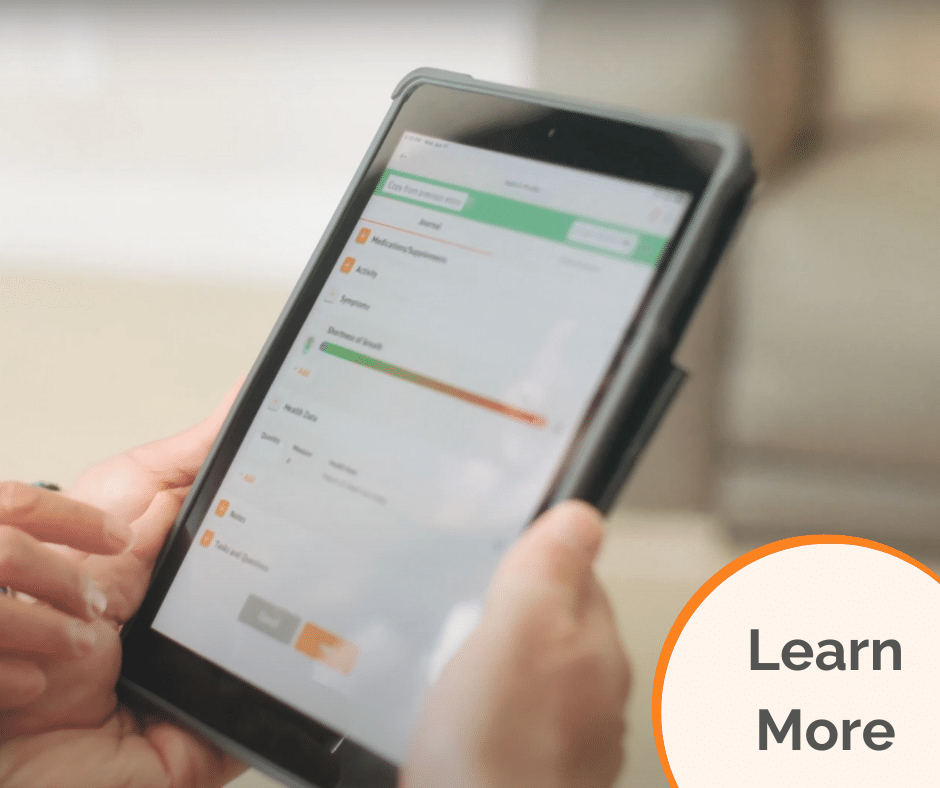The Importance of Taking Control of Your Own Health Care Data
Taking the initiative to control your health data can lead to better patient empowerment and overall health outcome.
As the healthcare industry continues its march towards the digital age, the democratization of data has become an increasingly important topic. It’s common for any health-related experience to become overwhelming, as patients and their caregivers need to keep track of different symptoms, treatments, notes, and appointments. Taking the driver’s seat with your health data can lead to a more empowered patient experience and ultimately, better overall health outcomes.
Why is this patient-centred approach to taking control of your health data so important?
Ease of Navigation
When battling an illness or undergoing a complex treatment regime, the individual patient experience often involves navigating multiple practitioners, clinics, and opinions – most of which aren’t connected. It’s no surprise that patient’s data can often become scattered, especially as the network of parties involved grows, or as patients are dealing with physicians outside of the health care system and country.
Taking ownership of your health data positions you as the hub of all your information from different sources. By keeping track of your data in an organized manner, it allows for a streamlined process. Now, when visiting a new practitioner for the first time, you can simply show them a complete log of everything you know so far, which will help to expedite the process.
A study conducted in 2015 found that for 55% of patients, their medical information and history was either incomplete or missing when they arrived at their doctor’s office. In these types of circumstance, doctors would rely on patients to fill in the gaps - which can only be properly done if they are in possession of their health data.

With a new diagnosis also comes a variety of new emotions – fear, stress, anxiety – which can negatively impact our memory. It may be challenging for patients and their caregivers to remember the exact dosage of a certain medication or the name of a specialist they met with several months ago. With patients taking control of their health care data, patients can share their whole health story with their care team, ensuring they do not leave out any important details.
Enhanced Health Literacy
The Public Health Agency of Canada defines health literacy as “the ability to access, comprehend, evaluate and communicate information as a way to promote, maintain and improve health in a variety of settings across the life-course.” When faced with a new diagnosis, patients and caregivers often enter unchartered territory and are exposed to unfamiliar medical jargon, both of which make self-advocacy hard.
Having your health data in your hands allows patients to better understand their medical condition and treatment options. As a result, patients will have the knowledge to communicate effectively with their care team, better comprehend the information provided to them, and have the resources to advocate for themselves.
More Informed Decision Making and Enhanced Patient Engagement
It is important for patients to be active participants in their health care journey. Having control over your health data will ensure you share the details most important to you, with your practitioners and will help promote meaningful interactions between both parties. There is more information about your physical and mental health that are not always included in medical records and electronic health records, EHRS.
-3.png?width=1600&name=Untitled%20design%20(2)-3.png)
Often when diagnosed with a chronic illness or condition, patients try a cocktail of medications and finding the best combination can be challenging. Actively tracking your symptoms, side-effects, feelings and experiences with different treatments will enable you to take control of your health and make more informed decisions when trying to find the best treatment options.
It has been shown that when patients actively participate in the decision making process with their care team, they experience better treatment outcomes and enhanced quality of life. This is only possible if patients and their caregivers are in control of their health data, and use it to educate themselves on their health state and treatment options.
A study published in the Journal of Pain Research (2017) found that patients with lower back pain who feel they have little control over their health, have a greater chance of feeling depressed. Becoming engaged with your health data can help improve both your physical and mental health outcomes.
At the end of the day, it’s the patient that makes decisions for themselves. When you’re able to stay up to date with your health information, you’ll always have a clear picture of your situation when it’s time to make a decision. These decisions – whether big or small – are best made when you can consider all the information available.
Crowdsourcing
As control of health data moves from exclusively medical authorities and into the hands of patients and their caregivers, this also means that patients can share it as they please. Not only does health ownership empower patients and caregivers to do their own research it also enables access to a larger community of patients and caregivers – one of the strongest assets and allies during these times.
-4.png?width=1600&name=Untitled%20design%20(1)-4.png)
These patients and caregivers who have gone through a similar experience to you are armed with advice and experiences, and are often people you can best relate to. Ultimately, your treatment experience is a two-way street with yourself and your care team – and the more information you can provide, from a variety reliable of sources, the better.
Peace of Mind
Whether you’re a patient or caregiver, the diagnoses and treatment experiences can become physically emotionally exhausting. When newly diagnosed or living with a chronic condition, your life can feel like it’s on pause. Obtaining print-outs, informative pamphlets and hard copies of documents from doctors can be time consuming, overwhelming and frustrating.
By having your health data easily accessible and in your hands, and adopting a proactive approach to your health, it will save you time, ease the process, and make you the driver of your health journey. You can find comfort in knowing that you have all of your health information in one place. This will allow you to be more present while interacting with your health care team - instead of spending time flipping through pages trying to find the information you are looking for.
At the end of the day, taking control of your health data allows you to spend less time managing the system and more time doing the things you love and enjoying life!
Share this
You May Also Like
These Related Stories
-Oct-16-2023-07-15-56-6931-PM.png?width=940&height=788&name=Updated%20Blog%20Images%20(Blog%20listing)-Oct-16-2023-07-15-56-6931-PM.png)
Empowerment in Health Care: Taking Control of Your Health
-2.png?width=940&height=788&name=Updated%20Blog%20Images%20(Blog%20listing)-2.png)
Connected Health Solutions: What Is a Connected Health Platform?
%20(1).png?width=940&height=788&name=Updated%20Blog%20Images%20(Blog%20listing)%20(1).png)
.png?width=500&height=200&name=Zamplo%20Logo%20(1).png)


%20(2).png?width=940&name=Blogs%20Product%20Image%20(940%20%C3%97%20200%20px)%20(2).png)

No Comments Yet
Let us know what you think